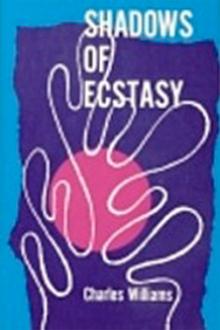Blacksheep! Blacksheep!, Meredith Nicholson [reading women .txt] 📗

- Author: Meredith Nicholson
- Performer: -
Book online «Blacksheep! Blacksheep!, Meredith Nicholson [reading women .txt] 📗». Author Meredith Nicholson
"That's poor old Hoky all right," murmured the Governor, buttering a piece of toast reflectively. "How indecent to prop up a corpse that way and take a snapshot merely to satisfy the morbid curiosity of a silly public! As you seem to be entranced with the literary style of our Bailey Harbor correspondent, I shall take the liberty of helping you to a fried egg."
However, Archie's appetite was pretty effectually spoiled by this paragraph:
An odd circumstance, more or less remotely connected with the killing of the burglar in the fashionable colony still remains to be explained. Officer Yerkes shortly before two o'clock, the hour at which the thief was shot in Mr. Cummings's home, saw a man hurrying through Water Street. He bore the appearance of a gentleman, and the officer did not accost him, thinking him a yachtsman from one of the boats in the harbor who had been visiting friends ashore. Yerkes says that the man walked oddly, pausing now and then as though in pain, and was carrying his right hand upon his left shoulder. Owing to the poor lighting of Water Street—a matter that has been a subject of frequent complaint to the city authorities—Yerkes was unable to catch a glimpse of the stranger's features. This morning drops of blood were found on the board walk crossed by the stranger where Officer Yerkes had seen him, and it is believed that this was another of the burglar-gang who was wounded in a struggle somewhere in the interior and was seeking the help of his confederate, presumably the man shot in the Cummings house.
As the paper fell from Archie's hand the Governor took it up.
"You seem agitated, Archie! You must learn to conceal your feelings!"
When he had read the paragraph he glanced quickly at Archie, whose fork was beating a queer tattoo on his plate.
"Your work possibly?" murmured the Governor. "Compose yourself. That old lady over there has her eye on you. I'm afraid you lied to me about the drug store, for if you'd done any shooting in that neighborhood you would never have got out of town alive! No!"—he held up his hand warningly—"tell me nothing! But if we've got a murder behind us, we shall certainly be most circumspect in our movements. That's all piffle about Hoky having any confederate except me. And there's not a single one of the great comradeship on this shore—I know that; no one who knows the password of the inner door. You interest me more and more, Archie! I congratulate you on your splendid nerve."
Archie's nerve was nothing he could admire himself, but a second cup of coffee put warmth into his vitals and he recovered sufficiently to pay the breakfast check. If it was Congdon he had shot there was still the hope, encouraged by the newspaper, that the wounded man was in no haste to report his injury to the police. But Archie found little comfort in the thought that somewhere in the world there was a man he had shot and perhaps fatally wounded.
He must conceal his anxious concern from the Governor; for more than ever he must rely upon his strange friend for assistance in escaping from the consequences of the duel in the Congdon cottage.
III"I was thinking," remarked the Governor, after a long reverie, "that it would be only decent for me to run back to Bailey Harbor and attend poor Hoky's funeral."
Archie stared aghast.
"Hoky was my friend," the Governor continued. "The newspaper says he's to be buried in the Potter's Field this afternoon, and it will only set us back a day in our plans. I can imagine how desperately forlorn the thing will be. Some parson will say a perfunctory prayer for a poor devil he believes to have gone straight to the fiery pit and they'll bury him in a pauper's grave. There will be the usual morbidly curious crowd hanging round, wagging their heads and whispering. I shall go, Archie, and you can wait for me. It will take only a few hours and we can spend the night here and resume our journey tomorrow."
"But a stranger appearing there! It's dangerous!" Archie protested. "I wouldn't go back there for a million dollars!"
"Hoky would have taken the chance for me," said the Governor, firmly. "The whole shore teems with tourists, and I'll leave it to your judgment whether any one would take me for a crook. Be careful of my feelings, Archie; I'm just a little emotional today. Hoky and I have run before the hounds too often for me to desert him now. The people up there may think what they please and go to the devil! Hoky had ideals of a sort; he never squealed on a pal; he was as loyal as the summer sun to ripening corn."
The Governor's interest in Hoky's obsequies was chivalrous beyond question, but Archie resented being left alone. The Governor's departure struck him in all the circumstances as a base desertion, and forlorn and frightened he locked himself in his room, expecting that any moment the police would batter down the door. The waiting for this catastrophe became intolerable and after an hour of it he went downstairs meditating a walk to the wharves. A young woman stood at the desk talking to the clerk, who scanned the pages of the register and shook his head.
"No Mrs. Congdon has registered here within a week, I'm sure. Will you leave any message?"
She said no and asked about trains.
"Did you want something, Mr. Comly?" the clerk asked courteously.
Archie had paused by the desk, staring open-mouthed at the young woman, who was asking the boy who held her bag to summon a taxi. If he was still possessed of his senses the girl in the gray tailored suit was Isabel Perry. The walls of the hotel office appeared to be tipping toward him. Isabel might have come to Portsmouth in answer to the prayer of his heart, but not Isabel asking for Mrs. Congdon. Isabel had glanced carelessly in his direction as the clerk addressed him as Mr. Comly and he had promptly raised his hat, only to be met with a reluctant nod and a look of displeasure with connotations of alarm. Having dramatized himself as appearing before her, a splendid heroic figure, to receive her praise for his exploits, this reception was all but the last straw to his spirit. Moreover, she was walking toward the door as though anxious to escape from him.
He darted after her, resolved to risk another snub before allowing her to slip away ignorant of the vast change that had been wrought in him since their meeting in Washington. A taxi was not immediately forthcoming and she frowned impatiently as he appeared beside her. A frowning Isabel had not entered into his calculations at all; it was a mirthful, light-hearted Isabel he was carrying in his heart. He would affect gaiety; he would let her see that he was a dare-devil, the man she would have him be.
"Really!" he exclaimed, twittering like an imbecile, "isn't it jolly that we've met in this way?"
"I'm not so sure of that! May I ask just why you are here under an assumed name?"
"Well, you know," he began, his lips twitching as he mopped his face, "you told me to throw a brick at the world and I've been following your advice." Under her stoical scrutiny his voice squeaked hysterically. "It's perfectly jolly, the life I'm leading! You never heard of anything so wild and devilish! Miss Perry, behold your handiwork!"
Perspiring, stuttering, with the glitter of madness in his eyes, he was not on the whole an object to be proud of, and there was no pride or joy manifest in Miss Isabel Perry as she observed him critically, with the detachment of one who observes a wild animal in a menagerie. Her silence moved him to further frantic efforts to impress her with the fact that he was now a character molded to her hand.
"You were asking for Mrs. Congdon; Mrs. Putney Congdon, I suppose? Well, I certainly could tell you a story if you would give me time! What I don't know about the Congdon family wouldn't make a large book! Ha, ha! But if I had known Mrs. Congdon was a friend of yours I should have acted differently, very differently indeed."
He was attracting attention. The porter, the bell-boy supporting Isabel's bag, and a few passers-by paused, amused by the spectacle of a heated gentleman earnestly addressing a young woman who seemed greatly annoyed by his attentions.
The taxi drew up and she stepped into it, but he landed beside her, flinging a handful of silver on the walk and taking her suitcase on his knees.
"This is unpardonable! If it hadn't been for making a scene I should have told the porter to throw you out!"
His teeth chattered as he tried to throw a conciliatory tone into his speech without losing his air of bravado.
"You know you're responsible for everything! I see life differently, really I do! And this is so beautifully romantic, running into you here, of all places!"
"I think," she said, sweeping him with a look of scorn, "that you've been following me or were put here to watch me!"
"Oh, that's unkind, most unkind! Purely chance,—the usual way, you know! How do you imagine I should be watching you with anything but the noblest intentions?"
"You went to Bailey Harbor to look at a cottage for Mrs. Featherstone, didn't you? Putney Congdon was there, wasn't he? And why are you loitering here when you were so eager to get away to the Rockies?"
At the mention of Putney Congdon a laugh, the sharp concatenation of a lunatic caused the driver to glance round apprehensively.
"That's the scream of it, you know!" Archie cried. "I don't know for the life of me whether it was Putney Congdon I shot at the Congdon house or Hoky, the burglar. They're burying Hoky today and my partner in crime—wonderful chap—insisted on going to the funeral. You couldn't beat that! And it's so deliciously funny that you should be looking for Mrs. Congdon, who may be a widow for all I know!"
"A widow!" Isabel, with her hand clutching the door, swung upon him with consternation and fear clearly depicted in her face.
Her astonishment moved him to greater hilarity. Seeing that he had at last impressed her, he redoubled his efforts to be entertaining.
"Oh, that's the mystery just at present, whether poor old Putney is dead or not! No great loss, I imagine! But where do you suppose Mrs. Congdon went to hide her children from the brute?"
"That's exactly what I suspected!" she exclaimed furiously. "You are waiting here to find that out! How can you play the spy for him! You talk about shooting a man! Why, you haven't the moral courage to kill a flea! The kindest interpretation I can put upon your actions is to assume that you are hopelessly mad."
They had reached the station, and she jumped out and snatched her bag. He gave the driver a five dollar bill and dashed across the platform only to see her vanish into the vestibule of a Boston train just as it was drawing out.
He walked to the water front firmly resolved to drown himself, but his courage failing he yielded himself luxuriously to melancholy reflections. Instead of expressing delight at finding him reveling in villainy, Isabel had made it disagreeably clear that she





Comments (0)